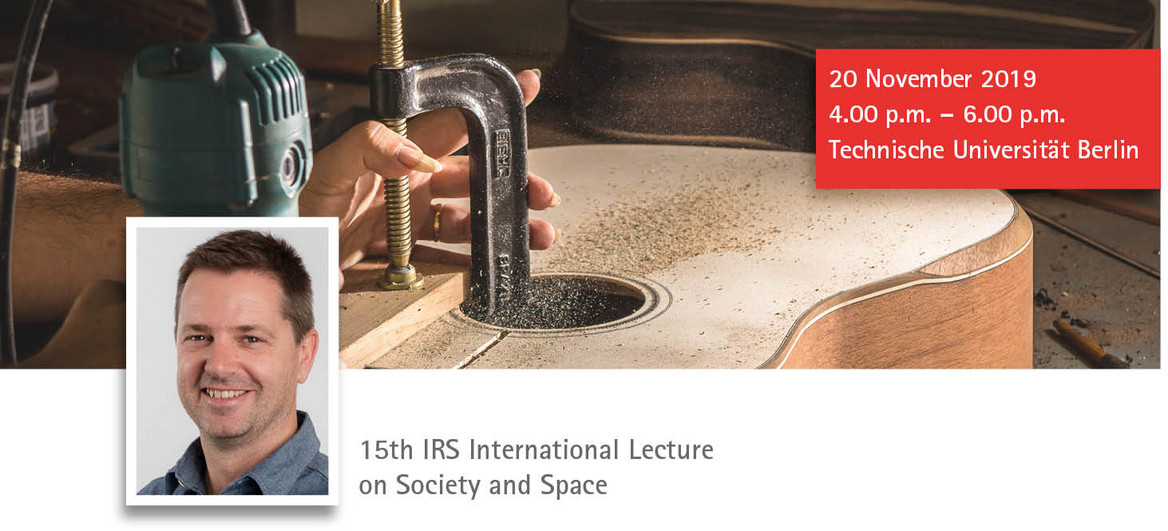Main Content
Experiments at the Edge: Ecological Crisis, Resource Security, and Core-Periphery Dynamics in Global Production Networks
15th IRS International Lecture on Society and Space with Chris Gibson, University of Wollongong, Australia

Qualities of distance, proximity, isolation and connection materially shape political economies of innovation, and infuse how actors view their activities within networks of production, exchange and mobility. The peripheral presents challenges and frustrations, but also freedom from metropolitan norms. For over two decades, Professor Chris Gibson has explored aspects of creative production in peripheral regions in such light. In this lecture, however, he focuses on disruptions to existing arrangements, new and unanticipated, that arise from ecological crises and accompanying regulatory responses. Emblematic of Anthropocenic economic geographies, upstream disruptions to resource flows challenge existing norms and practices in downstream production, reconfiguring core-periphery relations throughout global networks.
Chris Gibson will illustrate from a long-term project and forthcoming book which “follows” the guitar from factory to tree, encompassing musical instrument design, manufacturing, resource processing, timber procurement and upstream forest management. In guitar-making there are serious issues of resource scarcity, illegal logging, and sustainable timber use. Heightened environmental regulation and restrictions on trading endangered species has forced upstream material resource suppliers and manufacturers to reassess methods and reevaluate practices. Traditional hubs of manufacturing, and dominant lead firms, have been slow to react. Meanwhile, amidst disruptions to established industry practices, significant innovations arise from ostensibly peripheral actors in scattered places who respond to volatile circumstances by experimenting with new forestry techniques, alternative materials and collaborations with Indigenous resource owners. Conceptions of the peripheral thus shift once the analytical frame is questioned, and empirical scope widened from traditional centres of product innovation “all the way out” to the forest.
Vita
Chris Gibson is Professor of Human Geography at the University of Wollongong, and Executive Director of the interdisciplinary research program, Global Challenges: Transforming Lives & Regions. His research focuses on spatial cultural economy, creative industries, music, and more recently, manufacturing, in the context of uneven development and growing socio-ecological volatility.
His books include Sound tracks: popular music, identity and place (Routledge 2003), Creativity in peripheral places: redefining the creative industries (Routledge, 2014), and a forthcoming book for the University of Chicago Press, Following guitars from factory to forest.


